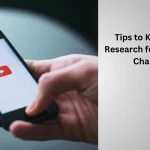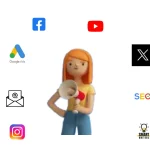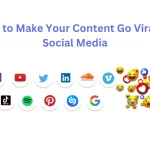Storytelling is the art of conveying a sequence of events or experiences, often involving characters, through spoken, written, or visual means. It is a fundamental aspect of human communication and has been used throughout history as a way to entertain, educate, and convey cultural values and beliefs. At its core, storytelling involves the creation and sharing of narratives that engage an audience’s emotions, imagination, and intellect. In this context, our focus on the power of storytelling in digital marketing.
Let’s jump into the deep
Various Forms of Storytelling:
Oral storytelling: This involves the spoken recounting of tales, myths, legends, or personal anecdotes. Oral storytelling has been a traditional method of passing down cultural heritage and knowledge from one generation to another.
Written storytelling: With the advent of writing, stories could be recorded and preserved in written form. This has allowed for the dissemination of stories across time and space, enabling them to reach broader audiences.
Visual storytelling: Visual mediums such as film, television, graphic novels, and comics utilize images, sound, and motion to convey stories. Visual storytelling combines elements of both written and oral storytelling but relies heavily on visual cues to engage the audience.
Digital storytelling: In the digital age, storytelling has expanded to include interactive and multimedia formats. Digital storytelling often incorporates elements such as text, images, audio, video, and interactive elements to create immersive and engaging narratives.
Regardless of the medium, effective storytelling often involves elements such as plot, characters, setting, conflict, and resolution. A well-crafted story can captivate audiences, evoke emotions, provoke thought, and inspire action. Storytelling continues to play a vital role in human culture, serving as a means of entertainment, education, communication, and cultural expression.
The Power of Storytelling in Digital Marketing
Storytelling plays a crucial role in digital marketing by helping brands connect with their audience on a deeper level, humanizing their message, and creating memorable experiences. Here are some ways in which storytelling can be powerful in digital marketing:
Building brand identity and awareness:
Effective storytelling allows brands to articulate their values, mission, and unique selling proposition in a compelling and relatable way. By sharing stories about the brand’s history, values, and the people behind it, marketers can foster a sense of trust, authenticity, and emotional connection with their audience.
Engaging and retaining customers:
It is a powerful tool in digital marketing that can help brands create meaningful connections with their audience, drive engagement and loyalty, and differentiate themselves in the marketplace. By leveraging the power of storytelling, brands can create compelling narratives that resonate with their audience and drive business success.
Storytelling captivates audiences’ attention and keeps them engaged with the brand’s content. By weaving narratives into marketing campaigns, brands can create memorable experiences that resonate with their target audience, increasing the likelihood of customer retention and loyalty.
Differentiating from competitors:
In a crowded marketplace, storytelling can help brands stand out from competitors by highlighting what sets them apart. By sharing stories that showcase their unique selling points, values, and customer experiences, brands can differentiate themselves and attract customers who resonate with their story.
Driving emotional connections and brand loyalty:
Stories have the power to evoke emotions and create lasting impressions on audiences. By tapping into emotions such as joy, nostalgia, empathy, or inspiration, brands can forge deep connections with their audience, leading to increased brand loyalty and advocacy.
Enhancing content virality and shareability:
Compelling stories are more likely to be shared by audiences on social media and other digital platforms. By creating shareable content that resonates with their target audience, brands can amplify their reach and increase brand visibility, leading to greater brand awareness and engagement.
Simplifying complex messages:
Storytelling can be an effective way to simplify complex concepts or technical information. By presenting information in the form of a narrative with relatable characters and scenarios, brands can make their messages more accessible and understandable to their audience.
Also Read
How Storytelling Creates Sales Funnel
It can be a highly effective tool for guiding potential customers through the various stages of the sales funnel, ultimately leading to conversions and sales. Here’s how storytelling can create and enhance each stage of the sales funnel:
Awareness:
At the top of the funnel, the goal is to attract the attention of potential customers and make them aware of your brand, products, or services.
Storytelling can help grab the audience’s attention by creating compelling narratives that resonate with their interests, needs, or pain points.
Through storytelling, brands can share engaging content such as blog posts, videos, or social media posts that introduce the brand’s story, values, and offerings to a wider audience.
Interest:
Once potential customers become aware of your brand, the next step is to pique their interest and encourage them to learn more.
Storytelling can be used to create engaging content that provides valuable information, solves problems, or entertains the audience.
By sharing stories that demonstrate how your products or services can address the audience’s needs or pain points, you can capture their interest and keep them engaged with your brand.
Consideration:
In the consideration stage, potential customers are actively evaluating different options and considering whether your products or services meet their needs.
Storytelling can help build trust and credibility with potential customers by sharing testimonials, case studies, or success stories from satisfied customers.
By sharing stories that showcase the benefits and features of your products or services in a relatable and persuasive way, you can help potential customers make informed decisions and move closer to making a purchase.
Decision:
In the decision stage, potential customers are ready to make a purchase decision, and storytelling can help tip the scales in your favor.
Storytelling can be used to create compelling offers, promotions, or incentives that encourage potential customers to take action and make a purchase.
By sharing stories that highlight the value proposition of your products or services and address any concerns or objections that potential customers may have, you can help seal the deal and convert leads into customers.
Action:
Finally, storytelling can be used to encourage repeat purchases, referrals, and customer advocacy, helping to nurture long-term relationships with customers and drive business growth.
By continuing to share engaging stories and content that resonates with your audience, you can keep customers engaged with your brand and inspire them to take further action, such as making repeat purchases, referring friends and family, or sharing their own stories and experiences with your brand.
Also Read
End Words
Storytelling can play a critical role in every stage of the sales funnel, from attracting potential customers to nurturing leads and driving conversions. By leveraging the power of storytelling, brands can create meaningful connections with their audience, build trust and credibility, and ultimately drive business success.







